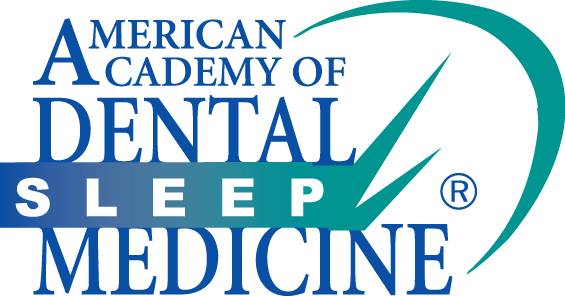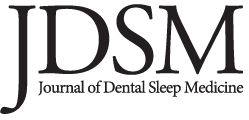
Letter 1, Issue 10.3
Subject: Oral Appliance and Pharmacologic Agents in the Treatment of Sleep Apnea: A Pilot Clinical Study
http://dx.doi.org/10.15331/jdsm.7306Mahadevappa Hunasikatti, MD,FCCP
Director, Internal Medicine, Pulmonary Medicine, Care Medicine and Sleep Medicine. Global Health Care Center ,13973 Park Center Road, Herndon VA 20171
Medical Officer, Sleep Team, DSRA, Food and Drug Administration, 10903 New Hampshire Avenue, Silver Spring, MD 20993
Dear Editor,
I read with interest the article by Stachie at al, Oral Appliance and Pharmacologic Agents in the Treatment of Sleep Apnea: A Pilot Clinical Study.1 The authors should be applauded for being the first to combine a dental device and pharmacotherapy. The inclusion criteria included an apnea-hypopnea index of 20 to 50 (median baseline, 32.96) with severe obstructive sleep apnea. These patients are at high risk for undesired sequelae of ineffective treatment. We are not sure if these patients were offered continuous positive airway pressure (CPAP) therapy, were intolerant of therapy, or refused therapy. Because CPAP is considered first-line therapy, it is unclear whether it was offered to patients before they were enrolled in the clinical study.2
The authors state that ”Two patients were dropped from the study because they were nonresponsive to oral appliance therapy per medical judgment of the consultant sleep physician after the first study polysomnogram (MAD + placebo). One patient could not tolerate the oral appliance and was excluded.“ However, these actions would create significant bias in assessment of results. The authors conducted polysomnography after a 28-day study protocol. Patients undergoing any viable alternative therapy for severe obstructive sleep apnea (OSA) should have longer follow-up period to determine whether the therapy is effective in a chronic disease such as OSA. Therefore, significant risk studies may be needed long term, and not using known effective therapies may result in adverse events.
The use of fluoxetine raises interesting questions. Selective serotonin reuptake inhibitors such as citalopram, fluvoxamine, paroxetine, and sertraline decrease total rapid eye movement (REM) sleep and increase REM onset latency in acute (1 to 2 nights) and chronic (> 21 nights) administration in both healthy volunteers and patients with depression.3 In the long run, this may have an unintended effect on sleep architecture and may need to be evaluated with long-term follow-up. In the current study, it also would be interesting to determine whether the patients who were on pharmacotherapy experienced any changes in their sleep architecture. This was observed in an earlier study by the study authors in which ”there was a trend toward degraded REM sleep in the group receiving high-dose combination treatment: REM latency increased by 10%, and REM duration and REM percent of TST decreased by approximately 5%”.4
In the current context of the massive Phillips CPAP recall, this may be an ideal time to consider actively developing alternate therapies for severe OSA.5 The sleep community awaits further studies with combined therapies with dental devices along with other pharmacotherapies if they can be viable alternative therapies for severe OSA.
CITATION
Hunasikatti M. Subject: Oral appliance and pharmacologic agents in the treatment of sleep apnea: A pilot clinical study. J Dent Sleep Med. 2023;10(3).REFERENCES
- Stache RW, Prasad B, Viana G, Carley D, Galang-Boquiren MT. Oral appliance, and pharmacologic agents in the treatment of sleep apnea: A pilot clinical study. J Dent Sleep Med. 2022;9(1).
- Kapur VK, Auckley DH, Chowdhuri S, et al. Clinical practice guideline for diagnostic testing for adult obstructive sleep apnea: An American academy of sleep medicine clinical practice guideline. J Clin Sleep Med. 2017;13(3):479-504.
- Argyropoulos SV, Wilson SJ. Sleep disturbances in depression and the effects of antidepressants. Int Rev Psychiatry. 2005;17:237-245.
- Prasad B, Radulovacki M, Olopade C, Herdegen JJ, Logan T, Carley DW. Prospective trial of efficacy and safety of ondansetron and fluoxetine in patients with obstructive sleep apnea syndrome. Sleep. 2010;33(7):982-989.
- Medical Device Recall Notification. Philips Respironics sleep and respiratory care devices. https://www.usa.philips.com/healthcare/e/sleep/communications/src-update. Accessed February 18, 2023.
SUBMISSION AND CORRESPONDENCE INFORMATION
Submitted for publication February 3, 2022Accepted for publication December 21, 2022
Address correspondence to: Mahadevappa Hunasikatti, MD, FCCP; Email: mahadevappa.hunasikatti@gmail.com
